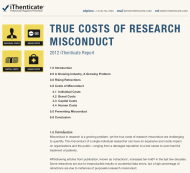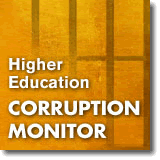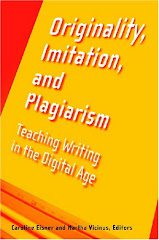Editorial
Nature 473, Pages:419–420 , Date published:(26 May 2011)
Nature 473, Pages:419–420 , Date published:(26 May 2011)
A slow university investigation into serious accusations of misconduct benefits no one.
As retractions go, it may not look like a big deal. Earlier this month, a statistics journal decided to pull a little-cited 2008 paper on the social networks of author–co-author relationships after it emerged that sections were plagiarized from textbooks and Wikipedia. The fact that this caused a wave of glee to ripple through the climate-change blogosphere takes some explaining.
Two of the paper's authors, Yasmin Said and Edward Wegman, both of George Mason University in Fairfax, Virginia, are also authors of an infamous 2006 report to Congress, co-written with statistician David Scott of Rice University in Houston, Texas. That report took aim at climatologist Michael Mann of Pennsylvania State University in University Park, suggesting that he was working in an isolated social network separated from “mainstream statisticians”, and that he had such close ties with the rest of the field that truly independent peer review of his work was not possible. This report came to be known as the Wegman report, and has been frequently cited by climate-change sceptics.
This social-network analysis of Mann and his co-authors — with Mann's name removed — was cut down to an academic paper and published two years later in the journal Computational Statistics & Data Analysis. It is this paper that the journal has decided to retract. So it seems likely that the plagiarism in the 2008 paper is also present in the 2006 Congress report. Still not look like a big deal?
That doubts about the 2006 report have resulted in concrete action is mainly down to the sterling work of an anonymous climate blogger called Deep Climate. His website first reported plagiarism in a different section of the congressional report in December 2009. One of those whose work was plagiarized is Raymond Bradley, director of the Climate System Research Center at the University of Massachusetts, Amherst. Ironically, Bradley was one of the co-authors of the climate reconstructions criticized by the Wegman report. Bradley, alerted by Deep Climate, complained to George Mason University on 5 March last year.
Wegman has blamed a graduate student for the plagiarism. Daniel Walsch, spokesperson for George Mason University, says that an internal review of the matter began in the autumn. He cannot estimate when that review will be complete, and, until it is, he says, the university regards it as a “personnel matter” and will not comment further. He adds that the review is still in the “inquiry” phase to ascertain whether a full investigation should be held. “Whether it is fast or slow is not as important as it being thorough and fair,” says Walsch.
The fact that 14 months have passed since Bradley's complaint without it being resolved is disheartening but not unusual. An examination of George Mason University's misconduct policies suggests that investigations should be resolved within a year of the initial complaint, including time for an appeal by the faculty member in question. According to the university's own timeline, the initial inquiry should have been complete within 12 weeks of the initial complaint — in May 2010. But there are loopholes galore for extensions, and, like many universities, George Mason seems content to drag its feet.
Long misconduct investigations do not serve anyone, except perhaps university public-relations departments that might hope everyone will have forgotten about a case by the time it wraps up. But in cases such as Wegman's, in which the work in question has been cited in policy debates, there is good reason for haste. Policy informed by rotten research is likely to have its own soft spots. Those who have been wronged deserve resolution of the matter. And one can hardly suppose that those who have been wrongfully accused enjoy living under a cloud for months.
So, what incentives do universities have to pick up the pace? Agencies such as the US Office of Research Integrity and ethics offices at funding bodies should take universities to task for slow investigations and demand adherence to the schedules listed in university policies. However, the agencies themselves haven't exactly been models of swift justice. The most recent annual report from the Office of Research Integrity — for 2008 — reported that the cases closed in that year spent a mean of 14.1 months at the agency. Perhaps it should fall to accreditation agencies to push for speedy investigations. Tom Benberg, vice-president of the Commission on Colleges of the Southern Association of Colleges and Schools — the agency that accredits George Mason University — says that his agency might investigate if the university repeatedly ignored its own policies on the timing of misconduct inquiries. To get the ball rolling, he says, someone would have to file a well-documented complaint.
Even if funding and accreditation agencies fail to apply pressure, universities should take the initiative to move investigations along as speedily as possible while allowing time for due process. Once an investigation is complete, the institution should be as transparent as it can about what happened. Especially when public funds are involved, or at public universities, the taxpayer has a right to know what happened when papers are retracted — even if the faculty member in question is eventually exonerated. This tidies the scientific record, clears the air and kicks the legs out from under any conspiracy theories. Over to you, George Mason University.









